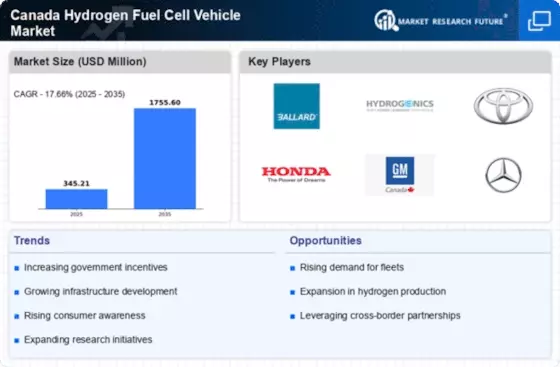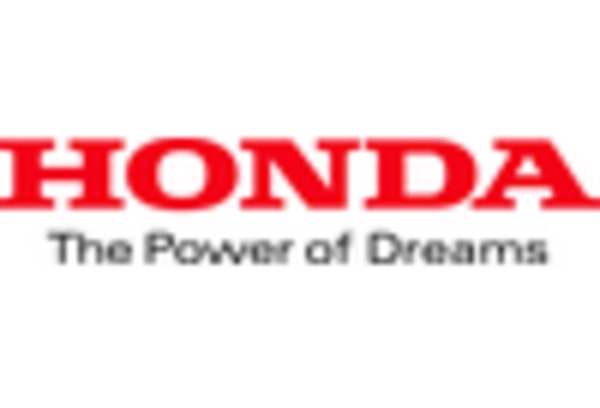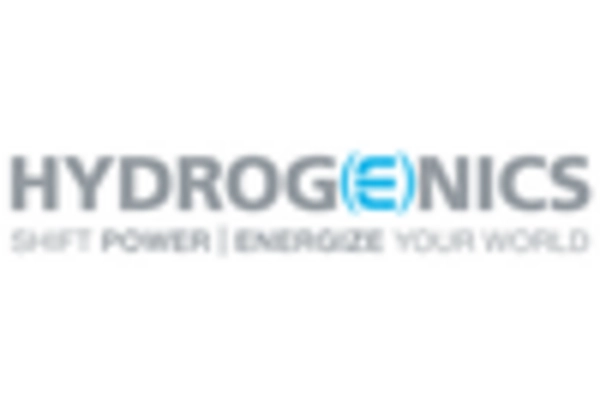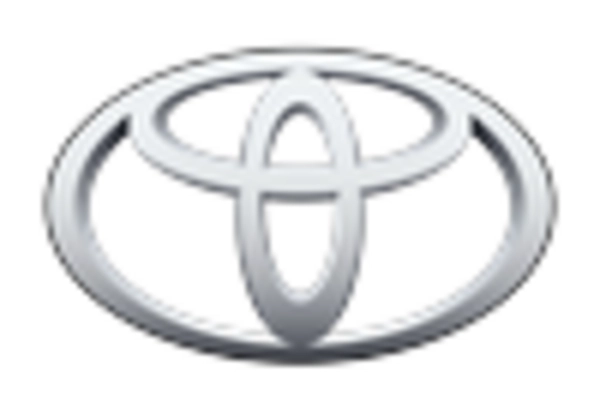Collaborations and Partnerships
Collaborations and partnerships among various stakeholders are instrumental in driving the Canada Hydrogen Fuel Cell Vehicle Market. Automakers, government agencies, and research institutions are increasingly working together to advance hydrogen technology and infrastructure. For instance, partnerships between automotive manufacturers and energy companies are focusing on developing hydrogen production and distribution systems. These collaborations not only pool resources and expertise but also accelerate innovation in hydrogen fuel cell technology. Furthermore, joint ventures can lead to shared investments in infrastructure, making it more feasible to establish a network of hydrogen refueling stations. Such cooperative efforts are likely to enhance the overall market landscape and foster a more robust hydrogen economy in Canada.
Growing Environmental Awareness
Increasing environmental awareness among Canadian consumers is a pivotal driver for the Canada Hydrogen Fuel Cell Vehicle Market. As climate change concerns escalate, there is a growing demand for sustainable transportation solutions. Hydrogen fuel cell vehicles, which emit only water vapor, align with the values of environmentally conscious consumers. According to recent surveys, a significant percentage of Canadians express a preference for zero-emission vehicles, indicating a shift in consumer behavior towards greener alternatives. This trend is further supported by educational campaigns and initiatives promoting the benefits of hydrogen technology, which could potentially lead to a surge in market adoption as consumers seek to reduce their carbon footprint.
Government Incentives and Subsidies
The Canada Hydrogen Fuel Cell Vehicle Market benefits from various government incentives and subsidies aimed at promoting clean energy technologies. The federal government has committed to investing in hydrogen infrastructure, with funding programs designed to support the development of hydrogen fuel cell vehicles. For instance, the Zero-Emission Vehicle (ZEV) program provides financial incentives for consumers purchasing hydrogen fuel cell vehicles, thereby stimulating market demand. Additionally, provincial governments, such as British Columbia and Quebec, have introduced their own initiatives to encourage the adoption of hydrogen technologies. These financial supports not only lower the initial cost barrier for consumers but also enhance the overall attractiveness of hydrogen fuel cell vehicles in Canada.
Expansion of Hydrogen Infrastructure
The expansion of hydrogen infrastructure is a critical driver for the Canada Hydrogen Fuel Cell Vehicle Market. The establishment of refueling stations is essential for the widespread adoption of hydrogen fuel cell vehicles. Currently, Canada is witnessing a gradual increase in the number of hydrogen refueling stations, particularly in provinces like British Columbia and Ontario. Government initiatives and partnerships with private companies are facilitating this growth, aiming to create a comprehensive network of refueling stations. As infrastructure improves, consumer confidence in hydrogen fuel cell vehicles is likely to rise, making them a more viable option for everyday transportation. This infrastructure development is pivotal for the long-term sustainability of the market.
Advancements in Hydrogen Production Technology
Technological advancements in hydrogen production are crucial for the growth of the Canada Hydrogen Fuel Cell Vehicle Market. Innovations in electrolysis and renewable energy integration have made hydrogen production more efficient and cost-effective. For example, the use of excess renewable energy from wind and solar sources to produce green hydrogen is gaining traction. This not only reduces production costs but also enhances the sustainability of hydrogen as a fuel source. As production technologies continue to evolve, the availability of affordable hydrogen fuel is likely to increase, thereby supporting the expansion of hydrogen fuel cell vehicles across Canada. This could lead to a more robust market presence and greater consumer acceptance.
















